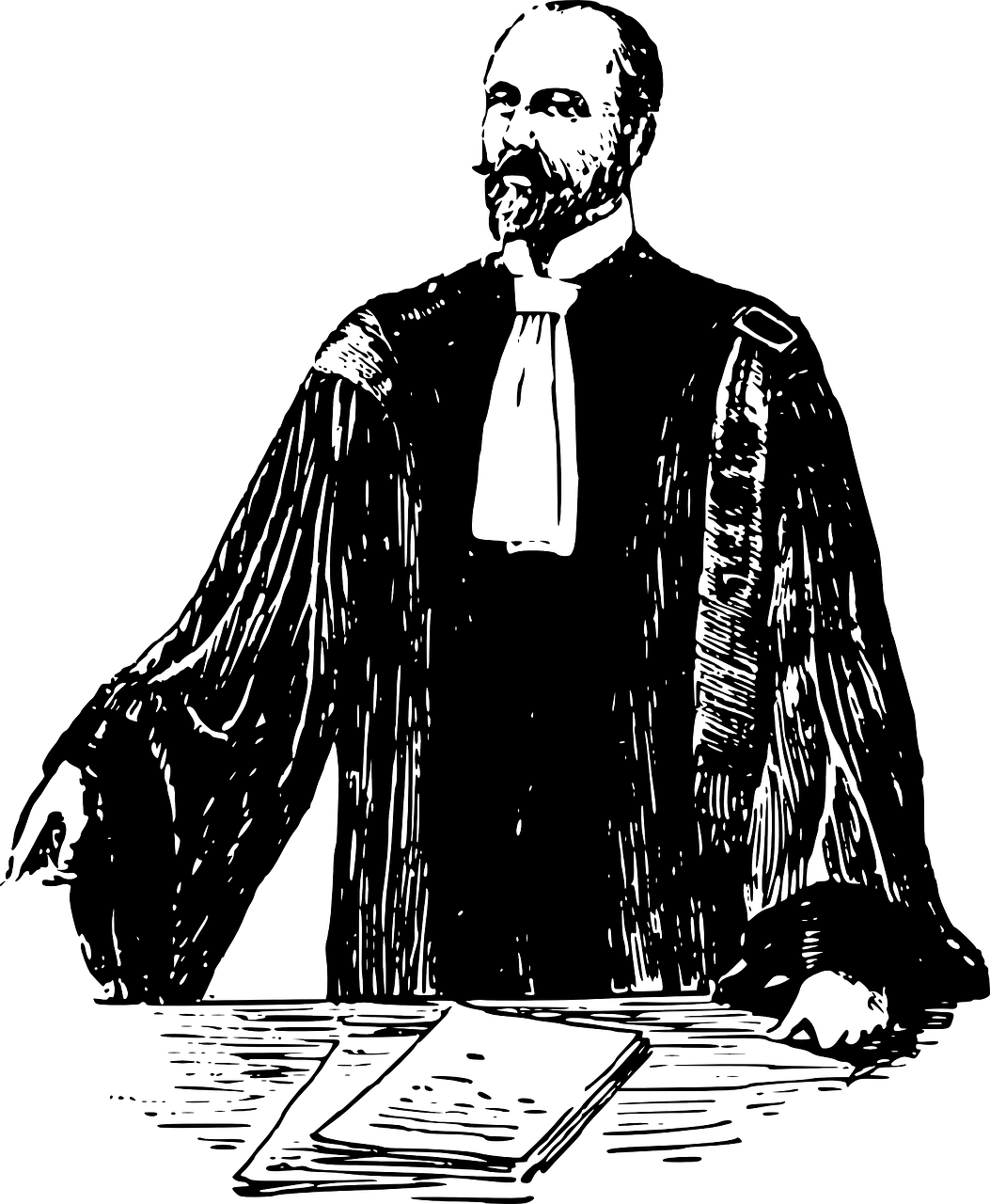Are you facing the challenging prospect of divorce in North Salt Lake, Utah? We understand the emotional and legal complexities that come with such a significant life decision. That’s why we’re here to provide you with reassurance, guidance, and the support you need during this time. Our team of experienced divorce lawyers is dedicated to helping you navigate through the legal process, ensuring your rights are protected and your best interests are served. With our expertise in family law, we can address common concerns, answer your questions, and provide you with the assistance you need to move forward. Don’t hesitate to take the next step and reach out to us for a confidential consultation.

Why You Need a Divorce Lawyer
Divorce can be a difficult and overwhelming time in your life. It’s a major life transition that involves not only emotional challenges but also complex legal processes. In order to navigate through the complexities of divorce and protect your rights and interests, it’s essential to have a knowledgeable and experienced divorce lawyer by your side. A divorce lawyer will provide you with the guidance and support you need throughout the entire process, ensuring that your rights are protected and that you achieve a fair settlement.
Understanding the complexity of divorce cases
Divorce cases can be incredibly complex, involving a wide range of legal issues and considerations. From property division to child custody agreements, there are many aspects that need to be carefully addressed and negotiated. Understanding the legal complexities and intricacies of divorce cases requires specialized knowledge and experience in family law. A divorce lawyer will have the expertise to navigate through all the legal requirements and ensure that your case is handled effectively.
Navigating the legal process
The legal process involved in divorce can be overwhelming and confusing. From filling out and filing the necessary legal documents to attending court hearings, there are numerous steps that need to be followed. Without proper legal guidance, it’s easy to make mistakes or overlook crucial details that could significantly impact the outcome of your case. A divorce lawyer will guide you through each step of the process, ensuring that you understand what needs to be done and that all necessary paperwork is filled out correctly and filed on time.
Protecting your rights and interests
One of the most important reasons to hire a divorce lawyer is to protect your rights and interests throughout the divorce process. A divorce lawyer will advocate for you and work to ensure that your best interests are represented in negotiations and settlements. Whether it’s ensuring a fair division of assets or fighting for a favorable custody arrangement, a divorce lawyer will fight for your rights and work towards achieving the best possible outcome for you.
Negotiating fair settlements
Divorce often involves difficult and emotional negotiations. From dividing assets and debts to determining child custody arrangements, there are many important decisions that need to be made. A divorce lawyer will be skilled in negotiation tactics and will work to achieve fair settlements on your behalf. They will ensure that your voice is heard and that your needs are taken into consideration during these negotiations. By having a divorce lawyer by your side, you can have peace of mind knowing that you have someone fighting for your best interests and working towards achieving a fair outcome.
Qualities to Look for in a Divorce Lawyer
Hiring the right divorce lawyer is essential to ensure that your case is handled effectively and that your rights and interests are protected. When looking for a divorce lawyer, there are several important qualities to consider:
Experience and expertise
One of the most important qualities to look for in a divorce lawyer is experience and expertise in family law. You want a lawyer who has a solid understanding of the legal complexities involved in divorce cases and who has successfully handled similar cases in the past. An experienced divorce lawyer will have the knowledge and skills to effectively navigate through the legal process and achieve favorable outcomes.
Strong communication and negotiation skills
Effective communication and negotiation skills are crucial for a divorce lawyer. They need to be able to clearly communicate your needs and desires to the other party and work towards finding fair and mutually beneficial solutions. A divorce lawyer with strong communication and negotiation skills will be able to effectively advocate for you and ensure that your side of the story is heard.
Compassion and empathy
Divorce is a highly emotional and challenging process. It’s important to have a divorce lawyer who understands and empathizes with what you’re going through. A lawyer with compassion and empathy will be able to provide the support and guidance you need during this difficult time. They will not only focus on the legal aspects of the case but also provide emotional support to help you navigate through the emotional challenges.
Availability and responsiveness
Divorce cases can be time-sensitive, and it’s important to have a divorce lawyer who is available and responsive to your needs. You want a lawyer who will promptly return your calls and emails, and who will be there for you when you have urgent questions or concerns. Having a lawyer who is readily available and responsive will give you peace of mind knowing that you can count on their support throughout the process.
Services Offered by a Divorce Lawyer
A divorce lawyer provides a wide range of services to help guide you through the divorce process. They will be your advocate and legal advisor, ensuring that your rights are protected and that you achieve a fair settlement. Some of the key services offered by a divorce lawyer include:
Initial consultation and case evaluation
The first step in working with a divorce lawyer is typically an initial consultation. During this consultation, the lawyer will assess the details of your case, listen to your concerns and goals, and provide you with an evaluation of your options. This consultation allows you to discuss your case and get a better understanding of the legal process involved.
Legal advice and guidance
Throughout the divorce process, a divorce lawyer will provide you with legal advice and guidance. They will explain the relevant laws and regulations, help you understand your rights and options, and offer expert advice on how to proceed with your case. Having a divorce lawyer by your side ensures that you have a knowledgeable and experienced professional guiding you through the legal complexities.
Document preparation and filing
Divorce involves significant amounts of paperwork. From financial statements to child custody agreements, there are numerous documents that need to be prepared and filed correctly. A divorce lawyer will handle all the necessary document preparation and ensure that everything is filed accurately and on time. They will also help you gather the required documentation and ensure that it is organized and presented in a way that supports your case.
Representation in court
If your divorce case goes to court, a divorce lawyer will provide representation on your behalf. They will argue your case, present evidence, and advocate for your rights in front of the judge. Having a skilled and experienced lawyer representing you in court can significantly increase your chances of achieving a favorable outcome.
Mediation and alternative dispute resolution
In many cases, divorcing couples are able to reach agreements outside of court through mediation or alternative dispute resolution methods. A divorce lawyer can help facilitate these discussions and negotiations, ensuring that your interests are represented and that any agreements reached are fair and legally sound. By working with a divorce lawyer during mediation, you can avoid the stress and expense of a lengthy court battle.
Understanding the Divorce Process in North Salt Lake, Utah
Divorce laws and procedures can vary from state to state, and it’s important to have a clear understanding of the specific processes and regulations that apply to your case. If you are located in North Salt Lake, Utah, here are some key aspects of the divorce process that you should be aware of:
Residency requirements
In order to file for divorce in Utah, either you or your spouse must have been a resident of the state for at least three months. This residency requirement ensures that you have a connection to the state and that Utah has jurisdiction over your case.
Grounds for divorce
Utah recognizes both fault-based and no-fault grounds for divorce. No-fault divorce can be based on the irreconcilable differences of the parties, meaning that there has been a breakdown of the marriage without any hope of reconciliation. If fault-based grounds are used, common examples include adultery, cruelty, desertion, habitual drunkenness, and felony conviction.
Property division
Utah follows the principle of “equitable distribution” when it comes to property division in divorce cases. This means that marital property will be divided fairly, but not necessarily equally, between the spouses. Marital property includes assets and debts acquired during the course of the marriage, while separate property remains the property of the individual spouse.
Child custody and visitation
In Utah, the courts prioritize the best interests of the child when making decisions about child custody and visitation. The court will consider factors such as the child’s relationship with each parent, the ability of each parent to care for the child, and the child’s wishes if they are of sufficient age and maturity. Utah encourages parents to work together to create a parenting plan that meets the child’s needs and promotes their well-being.
Child and spousal support
Child support in Utah is determined based on a calculation that takes into account the income and financial resources of both parents, as well as the needs of the child. Spousal support, or alimony, may be awarded based on factors such as the length of the marriage, the financial situation of each spouse, and the earning potential of each spouse. The court will consider various factors in determining whether spousal support is appropriate and, if so, the amount and duration.
Modifications and enforcement
After a divorce is finalized, circumstances may change that require modifications to the original divorce agreement. This could include changes in income, health, or living arrangements. In Utah, modifications to child custody, support, or visitation orders may be possible if there has been a substantial change in circumstances. It’s important to consult with a divorce lawyer to understand your options for modifying or enforcing the terms of your divorce agreement.
How to Choose the Right Divorce Lawyer in North Salt Lake, Utah
Choosing the right divorce lawyer is a critical decision that can greatly impact the outcome of your case. Here are some steps to help you choose the right divorce lawyer in North Salt Lake, Utah:
Research and gather recommendations
Start by doing some research online to find divorce lawyers in North Salt Lake, Utah. Look for lawyers who specialize in family law and have experience handling divorce cases. You can also ask friends, family, or colleagues for recommendations if they have gone through a divorce themselves or know someone who has.
Check credentials and experience
Once you have a list of potential lawyers, check their credentials and experience. Look for lawyers who are licensed to practice in Utah and have a good reputation within the legal community. Read reviews or testimonials from past clients to get an idea of their track record and success rate in handling divorce cases.
Schedule consultations
Contact the lawyers you are interested in and schedule consultations. Most divorce lawyers offer initial consultations for free or at a reduced fee. Take advantage of this opportunity to meet with each lawyer and ask them about their experience, approach to divorce cases, and how they would handle your specific situation. This will give you a chance to assess their knowledge, communication style, and compatibility with you.
Assess communication and compatibility
During the consultations, pay close attention to how each lawyer communicates with you. Do they listen attentively to your concerns? Do they explain legal concepts and procedures in a way that you can understand? Communication is key in any legal matter, so it’s important to choose a divorce lawyer who communicates effectively and makes you feel comfortable.
Consider fees and payment structure
Discuss fees and the payment structure with each lawyer. Make sure you understand how they bill for their services and what the estimated cost of your case would be. Some lawyers charge an hourly rate, while others may work on a flat fee basis. Consider your budget and choose a lawyer whose fees are reasonable and align with your financial capabilities.
The Benefits of Hiring a Local Divorce Lawyer
When going through a divorce, it can be beneficial to hire a local divorce lawyer who is familiar with the laws and procedures specific to your area. Here are some key benefits of hiring a local divorce lawyer in North Salt Lake, Utah:
In-depth knowledge of local laws and procedures
Divorce laws can vary from state to state, and even within different counties. By hiring a local divorce lawyer, you can benefit from their in-depth knowledge of the specific laws and procedures that apply to your case. They will be familiar with local court rules and practices, which can help navigate your case more efficiently.
Familiarity with local judges and court officials
Local divorce lawyers often have established relationships with judges and court officials in their area. This familiarity can be advantageous when it comes to negotiations and courtroom proceedings. A local lawyer will understand the preferences and tendencies of local judges, which can help them strategize and present your case more effectively.
Convenience and accessibility
Working with a local divorce lawyer offers convenience and accessibility. You can easily schedule in-person meetings and consultations without having to travel long distances. This allows for more frequent and effective communication throughout the divorce process. Additionally, a local lawyer will have knowledge of local resources and services that can be beneficial to your case.
Easier coordination and communication
Divorce cases often require coordination and communication with various professionals, such as mediators, financial experts, or child custody evaluators. Hiring a local divorce lawyer allows for easier coordination and collaboration with these professionals. A local lawyer will have established relationships and contacts within the local legal community, making it easier to assemble a team of experts to support your case.

Protecting Your Interests and Rights During Divorce
Divorce can be a challenging and emotionally draining experience, but it’s important to remember that you have rights and entitlements that need to be protected. Here are some ways to protect your interests and rights during divorce:
Understanding your rights and entitlements
Educate yourself on your rights and entitlements under the law. This includes understanding the laws surrounding property division, child custody, child support, and spousal support. Consulting with a divorce lawyer can help you gain a clear understanding of your legal rights and options.
Gathering and organizing financial documents
When going through a divorce, it’s important to gather and organize all relevant financial documents. This includes bank statements, tax returns, property deeds, and any other documents related to your assets, debts, and income. Having these documents organized and readily available will help ensure that all relevant financial information is considered during the divorce process.
Developing a comprehensive strategy
Work with your divorce lawyer to develop a comprehensive strategy for your case. This should include defining your goals and priorities, anticipating potential challenges, and outlining a plan of action. Having a well-thought-out strategy will help guide your decision-making and negotiations throughout the divorce process.
Negotiating fair settlements
Negotiation is a key aspect of the divorce process. It’s important to approach negotiations with a clear understanding of your rights and a willingness to compromise when necessary. Your divorce lawyer will advocate for your interests and negotiate with the other party on your behalf. By being prepared and informed, you can work towards achieving fair settlements that protect your rights and interests.
Protecting your children’s best interests
If you have children, it’s crucial to prioritize their best interests throughout the divorce process. This includes creating a parenting plan that outlines the custody and visitation arrangements, as well as addressing their financial and emotional needs. Your divorce lawyer can help guide you through the process of creating a parenting plan that promotes the well-being of your children and ensures that their best interests are protected.
Common Mistakes to Avoid During Divorce Proceedings
Divorce can be a challenging and emotionally charged process, and it’s easy to make mistakes that can have long-lasting consequences. Here are some common mistakes to avoid during divorce proceedings:
Letting emotions dictate decisions
Divorce can bring up strong emotions, such as anger, sadness, and resentment. It’s important to recognize and manage these emotions so that they don’t cloud your judgment or dictate your decision-making. Making impulsive or emotionally-driven decisions can lead to unfavorable outcomes. Take the time to calm your emotions and consider the long-term implications before making any important decisions.
Not seeking legal advice early on
It’s essential to seek legal advice as early as possible when going through a divorce. Consulting with a divorce lawyer from the beginning will ensure that you have a clear understanding of your rights and options. Waiting too long to seek legal advice can result in missed opportunities or legal missteps that can negatively impact your case.
Unrealistic expectations
Divorce can sometimes lead to unrealistic expectations about the outcome of the case. It’s important to have a realistic understanding of what is achievable and what is fair. Your divorce lawyer can provide you with an objective assessment of your case and help manage your expectations. Having a realistic outlook will help you make informed decisions and negotiate more effectively.
Ignoring financial considerations
Divorce has significant financial implications, and it’s important to carefully consider and plan for the financial aspects of your divorce. This includes evaluating your assets and debts, understanding the tax implications of property division, and considering future financial stability. Ignoring these financial considerations can lead to financial hardship or unfair settlements. Work with your divorce lawyer and financial professionals to ensure that you are adequately protected.
Failing to prioritize children’s well-being
When going through a divorce, it can be easy to get caught up in the legal process and forget about the impact it has on your children. Failing to prioritize their well-being can have long-lasting negative effects. Make sure to involve your children in the decision-making process to the extent that is appropriate for their age and maturity. Consider their needs and emotional well-being as you negotiate custody and visitation arrangements.

The Emotional Impact of Divorce and How to Cope
Divorce is not only a legal process, but also an emotional journey that can be filled with grief, stress, and anxiety. It’s important to take care of your emotional well-being during this time. Here are some tips for coping with the emotional impact of divorce:
Dealing with grief and loss
Divorce often involves a sense of loss and grief for the end of a relationship. It’s important to give yourself permission to grieve and mourn the loss of the relationship. Take the time to acknowledge and process your emotions in a healthy way, whether that’s through journaling, talking to a trusted friend, or seeking professional counseling.
Managing stress and anxiety
Divorce can be incredibly stressful, with many uncertainties and changes to navigate. It’s important to find healthy ways to manage stress and anxiety. This can include engaging in regular exercise, practicing mindfulness or meditation, and seeking support from a therapist or counselor. Taking care of your mental and physical well-being will help you navigate the divorce process with greater resilience.
Seeking support from friends and family
During divorce, it’s important to lean on your support network for emotional support and guidance. Reach out to trusted friends and family members who can provide you with a listening ear, advice, and encouragement. Having a strong support system can help alleviate feelings of isolation and provide a sense of stability during this challenging time.
Considering therapy or counseling
Therapy or counseling can be incredibly beneficial during divorce. A licensed therapist can provide you with a safe and non-judgmental space to process your emotions, develop coping strategies, and gain insight into your personal growth. Therapy can help you navigate the challenges of divorce with greater self-awareness and emotional resilience.
Taking care of your well-being
Divorce can be physically and emotionally demanding, and it’s important to prioritize self-care. Make sure to take time for activities that bring you joy and relaxation, such as hobbies, exercise, or spending time in nature. Take care of your physical health by getting adequate sleep, eating nutritious meals, and practicing self-care rituals that promote relaxation and rejuvenation.
Frequently Asked Questions: Divorce
Here are some frequently asked questions about divorce, along with brief answers:
How long does the divorce process take?
The duration of the divorce process can vary depending on various factors, including the complexity of the case, the level of cooperation between the parties, and the court’s caseload. In Utah, the minimum waiting period for a divorce to be finalized is 90 days, but the actual timeline can range from a few months to over a year.
What factors are considered in child custody decisions?
In Utah, child custody decisions are based on the best interests of the child. Factors taken into consideration may include the child’s relationship with each parent, the ability of each parent to care for the child, the child’s wishes if they are of sufficient age and maturity, and any history of abuse or neglect.
Can I modify child support after the divorce?
Under certain circumstances, child support orders can be modified. This can occur if there has been a substantial change in the financial circumstances of one or both parents, such as a change in income or employment. It’s important to consult with a divorce lawyer to determine if a modification of child support is appropriate in your case.
Can I represent myself in a divorce case?
While it is possible to represent yourself in a divorce case, it is not recommended, especially if there are complex legal issues or significant assets involved. Divorce cases are highly emotional and legally complex, and having a knowledgeable divorce lawyer can greatly increase your chances of achieving a favorable outcome.
How much does a divorce lawyer cost?
The cost of hiring a divorce lawyer can vary depending on the complexity of the case, the lawyer’s experience, and the specific services required. Some lawyers charge an hourly rate, while others work on a flat fee basis. It’s important to discuss fees and payment structures with potential lawyers during the initial consultation to ensure that they are within your budget.























